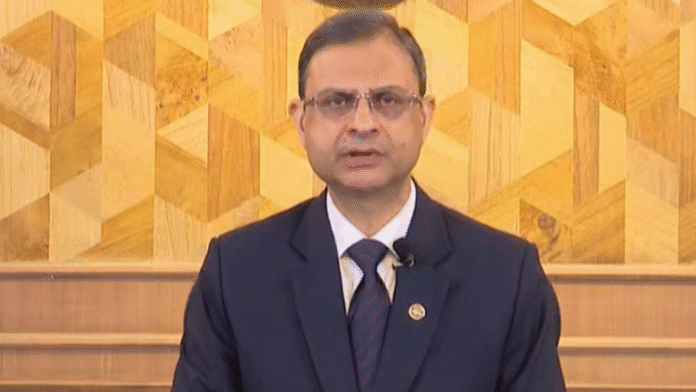(Source: IANS)
In a bold move aimed at revitalising economic growth, the Reserve Bank of India (RBI) on Friday cut the repo rate by 50 basis points, from 6% to 5.5%, while shifting its policy stance from ‘accommodative’ to ‘neutral’. The decision was announced by RBI Governor Sanjay Malhotra, who cited easing inflation as the key driver behind the move.
Alongside the rate cut, the central bank also announced a 100 basis points reduction in the Cash Reserve Ratio (CRR), to be implemented in four equal tranches of 25 basis points each beginning on September 6 and continuing through October 4, November 1, and November 29. This measure is expected to inject ₹2.5 lakh crore into the banking system, enhancing liquidity and encouraging credit growth.
The repo rate cut, the second in quick succession since February, is expected to bring down interest rates on bank loans, making borrowing more accessible for consumers and businesses. However, Governor Malhotra cautioned that the effectiveness of the policy will depend on how swiftly commercial banks pass on the benefit to borrowers.
Inflation has now fallen to 3.2%, well below the RBI’s lower target band of 4%, prompting the central bank to revise its inflation forecast downward from 4% to 3.7%. Malhotra said the moderation in prices is broad-based, and the alignment of inflation within target levels appears to be durable.
With the shift to a neutral policy stance, the RBI aims to maintain flexibility while monitoring growth-inflation dynamics. Governor Malhotra stressed that the fundamentals of the Indian economy remain strong, supported by healthy corporate and government balance sheets, a stable external sector, and continued investor interest, both domestic and foreign.
On the agricultural front, Malhotra noted that concerns around rabi crops have eased, with the second advance estimates indicating record wheat output and improved production of pulses. Robust kharif arrivals are also likely to support a sustained softening in food inflation, he said.
The Governor further added that falling crude oil prices and a decline in inflation expectations are favourable signs for maintaining price stability going forward. He reiterated that India remains the fastest-growing major economy, driven by demographic advantages, rapid digitalisation, and strong domestic demand.





